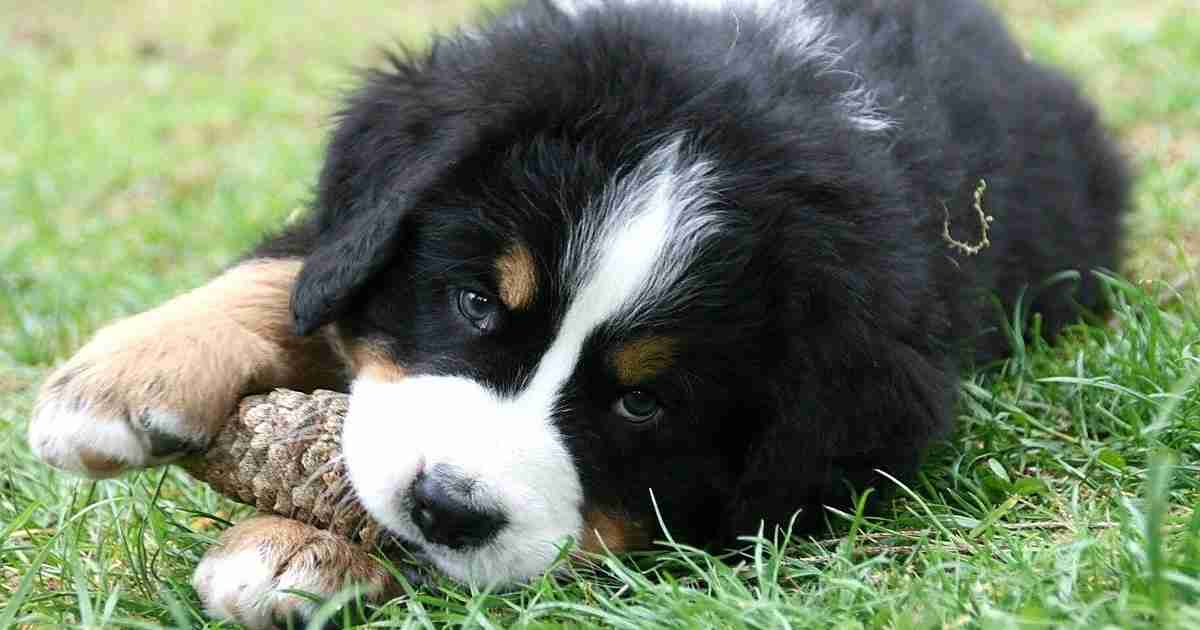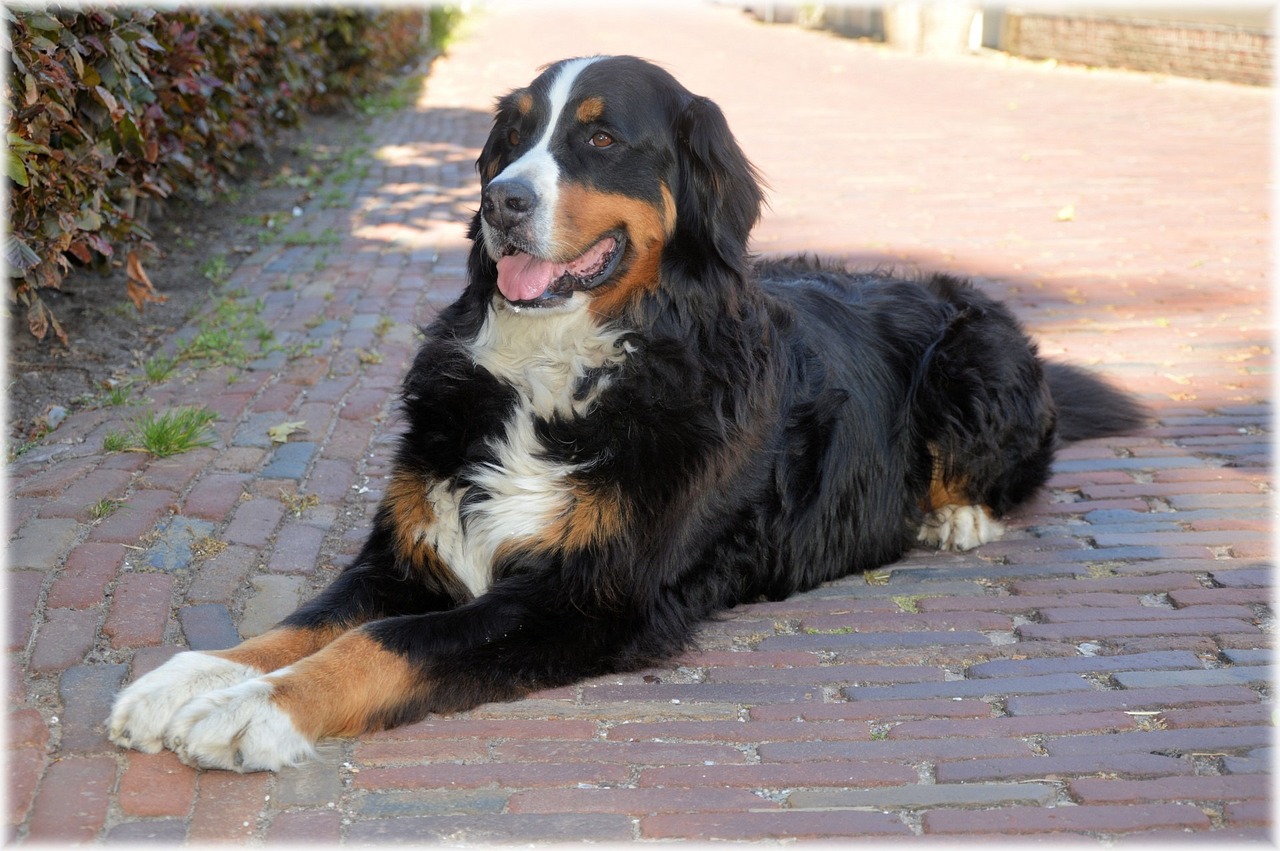If you’ve ever wondered when is the right time to neuter your Bernese Mountain Dog, you’re in the right place! So, what’s the best age to have your furry friend undergo this procedure? Let’s dive right in and find out!
When it comes to neutering your Bernese Mountain Dog, the timing is crucial. You want to strike a balance between allowing your pup to fully develop physically and mentally, while also considering the long-term health benefits. Ideally, the perfect age to neuter a Bernese Mountain Dog is between six and nine months.
Neutering your Bernese Mountain Dog during this window can have numerous advantages. It helps prevent certain health issues, like testicular cancer and prostate problems, while also curbing unwanted behaviors such as aggression and roaming tendencies. So, keep reading to learn more about the benefits of neutering and what you need to consider when deciding on the right age for your Bernese Mountain Dog’s neutering journey.

What Age Should a Bernese Mountain Dog be Neutered?
Neutering a Bernese Mountain Dog is an important decision that many dog owners face. It involves surgically removing the reproductive organs of a male or female dog to prevent them from reproducing. While the decision to neuter a dog ultimately lies with the owner, there are several factors to consider when determining the appropriate age to have a Bernese Mountain Dog neutered. In this article, we will explore the benefits of neutering, the ideal age for neutering a Bernese Mountain Dog, and some key considerations to keep in mind.
The Benefits of Neutering a Bernese Mountain Dog
Neutering your Bernese Mountain Dog can have several benefits for both the dog and the owner. One of the primary benefits is population control. By neutering your dog, you can help prevent unwanted litters and reduce the number of homeless or stray dogs. Neutering also eliminates or reduces the risk of certain health issues, such as testicular cancer in males and uterine infections or breast tumors in females. Additionally, neutering can help improve behavioral problems, such as aggression or roaming tendencies. It may also make training and socialization easier.
It is important to note that there can be some potential downsides to neutering a Bernese Mountain Dog. Some studies suggest that neutering can increase the risk of certain health issues, such as joint problems or certain types of cancer. It is crucial to discuss these potential risks with your veterinarian before making a decision. Ultimately, the benefits and risks should be carefully weighed to determine the best course of action for your Bernese Mountain Dog.
The Ideal Age to Neuter a Bernese Mountain Dog
The ideal age to neuter a Bernese Mountain Dog is a topic of debate among veterinarians and dog owners. Traditionally, it was recommended to neuter dogs at around six to nine months of age. However, recent studies have shown that it may be beneficial to wait until the dog is fully matured, which is typically between 18 to 24 months of age. This allows the dog to fully develop physically and hormonally before undergoing the surgery.
Waiting until the dog is fully matured can help prevent certain health issues associated with early neutering, such as orthopedic problems. It is important to note that every dog is different, and individual factors should be considered. Consulting with your veterinarian will provide you with personalized advice based on your dog’s health, breed, and specific needs.
Considering Individual Factors
When deciding on the appropriate age to neuter your Bernese Mountain Dog, it is important to consider individual factors. These factors can include the dog’s breed, size, health, and behavior. Larger dog breeds, like Bernese Mountain Dogs, may benefit from waiting until they are fully matured before undergoing the surgery. This is because larger dogs typically have a longer growth period, and early neutering may interfere with their overall development.
Additionally, the owner’s lifestyle and living situation should also be taken into account. If you have multiple dogs or live in an area with a high population of intact dogs, neutering at a younger age may be more appropriate. On the other hand, if you have a single dog and can provide a safe and controlled environment, waiting until the dog is fully matured may be a better option. Discussing these factors with your veterinarian will help you make an informed decision about the ideal age to neuter your Bernese Mountain Dog.
Factors to Consider When Neutering a Bernese Mountain Dog
1. Health Benefits and Risks
Before making the decision to neuter your Bernese Mountain Dog, it is important to consider the potential health benefits and risks. Neutering can reduce the risk of certain health issues, such as testicular cancer in males and uterine infections in females. However, there are also studies that suggest an increased risk of joint problems and certain types of cancer with early neutering. Consulting with your veterinarian will help you weigh these factors and make an informed decision.
2. Behavioral Considerations
Neutering can have an impact on a dog’s behavior. It can help reduce or eliminate certain undesirable behaviors, such as aggression or roaming tendencies. However, it may not completely eliminate behavioral issues that are already established in the dog. It is important to consider your dog’s behavior and consult with a professional trainer or behaviorist if necessary.
3. Breed-Specific Factors
Different breeds may have specific considerations when it comes to neutering. Some breeds may be more prone to certain health issues or have different growth patterns. For Bernese Mountain Dogs, waiting until they are fully matured is generally recommended to allow for proper growth and development.
4. Individual Dog Factors
Each dog is unique, and individual factors should be considered when deciding on the age to neuter. Factors such as size, overall health, and behavior should all be taken into account. Your veterinarian can provide personalized advice based on these factors and help determine the best age to neuter your Bernese Mountain Dog.
5. Lifestyle and Living Situation
Your lifestyle and living situation can also play a role in the decision to neuter your dog. Consider factors such as the presence of other intact dogs in your household or community, your dog’s access to safe and controlled environments, and your ability to manage an intact dog. These factors can help guide the timing of the procedure.
6. Discussing with Your Veterinarian
Ultimately, the best course of action is to discuss the decision with your veterinarian. They can provide personalized advice based on your dog’s specific needs and help you make an informed decision. Your veterinarian will consider the breed-specific recommendations, individual factors, and your preferences to guide you in determining the appropriate age to neuter your Bernese Mountain Dog.
Conclusion
Deciding the appropriate age to neuter a Bernese Mountain Dog is not a one-size-fits-all approach. It is crucial to weigh the benefits, risks, and individual factors specific to your dog. Consulting with your veterinarian will provide you with personalized advice and help you make an informed decision. Remember, the well-being and health of your Bernese Mountain Dog should always be the top priority. So, take your time, gather information, and make the decision that is best for your beloved pet.
Key Takeaways: What Age Should a Bernese Mountain Dog Be Neutered?
- It is generally recommended to neuter a Bernese Mountain Dog between the ages of 6 to 9 months.
- Neutering at this age helps prevent certain health issues and unwanted behaviors.
- Consult with your veterinarian to determine the best timing for your specific dog.
- Neutering too early or too late can have potential negative effects on your dog’s health and behavior.
- Remember to consider the overall health and maturity of your dog before making a decision.
Frequently Asked Questions
When it comes to neutering a Bernese Mountain Dog, many dog owners have questions about the appropriate time to do so. Here are some commonly asked questions and their answers:
1. Is there an ideal age to neuter a Bernese Mountain Dog?
Yes, the recommended age to neuter a Bernese Mountain Dog is between 6 to 9 months. By neutering your dog during this time, you can help prevent certain health issues and unwanted behaviors that can arise in intact dogs. However, it’s always best to consult with your veterinarian for personalized advice based on your dog’s individual needs.
By neutering your dog at the suggested age, you can reduce the risk of certain types of cancer, including testicular cancer and mammary tumors. Neutering can also help prevent behavioral problems associated with intact males, such as aggression and roaming tendencies.
2. Does neutering a Bernese Mountain Dog affect their growth?
No, neutering a Bernese Mountain Dog does not impact their overall growth. The growth plates in dogs usually close by around 12 to 18 months, well after the recommended age for neutering. Neutering a dog does not stunt their growth or lead to abnormal skeletal development.
However, it’s important to note that proper nutrition and exercise are crucial for a puppy’s healthy growth regardless of whether they have been neutered or spayed. Consult with your veterinarian for specific dietary and exercise recommendations to ensure proper growth and development for your Bernese Mountain Dog.
3. Are there any risks associated with neutering a Bernese Mountain Dog?
As with any surgical procedure, there are certain risks associated with neutering a Bernese Mountain Dog. These risks include potential complications during anesthesia, infection, bleeding, and adverse reactions to medications. However, the overall risk of complications is relatively low, especially when performed by a skilled veterinarian in a controlled environment.
To minimize risks, it’s important to choose a reputable veterinarian who has experience with the neutering procedure. Follow all pre-operative and post-operative care instructions provided by the veterinarian to ensure the best possible outcome for your Bernese Mountain Dog.
4. Will neutering a Bernese Mountain Dog change their temperament?
Neutering a Bernese Mountain Dog is unlikely to drastically change their temperament. While intact male dogs may display more dominant and territorial behaviors, the impact of neutering on behavior can vary from dog to dog. Some dogs may become slightly calmer and less prone to certain undesirable behaviors, but their core personality usually remains unchanged.
The main behavioral benefits of neutering a Bernese Mountain Dog include reducing roaming tendencies, marking behaviors, and the possibility of aggression towards other male dogs. Nevertheless, every dog is unique, and individual personality and behavior can be influenced by a variety of factors, including genetics, socialization, and training.
5. Can neutering a Bernese Mountain Dog help with certain health issues?
Neutering a Bernese Mountain Dog can have several potential health benefits. It can significantly reduce the risk of certain types of cancers, such as testicular cancer and mammary tumors. For female dogs, it can also eliminate the risk of uterine infections and the development of pyometra, a potentially life-threatening condition.
Additionally, neutering can help prevent certain unwanted behaviors associated with intact dogs, such as roaming, marking, and aggression. By eliminating the hormonal fluctuations that occur in intact dogs, neutering can contribute to a more balanced and predictable behavior in Bernese Mountain Dogs.

Summary
If you have a Bernese Mountain Dog, it’s best to wait until they are fully grown before getting them neutered. This is usually around 1 to 2 years old. Neutering can help prevent certain health issues like certain cancers and infections, but it’s important to wait until their bones stop growing to avoid potential complications.
Remember that neutering is a personal decision based on your dog’s individual needs and your veterinarian’s advice. It’s always a good idea to have a conversation with your vet to discuss the best timing for your Bernese Mountain Dog’s neutering procedure.
